Bob King Defends UAW Contract Priorities
Watch UAW President Bob King on New Contracts: Top Priority Was Creating Jobs on PBS. See more from PBS NewsHour.
Though UAW boss Bob King has said that organizing transplant factories is a life-or-death struggle for the union, but the real make-or-break issue this year was the contract negotiations with the Detroit Automakers. And though King roundly denies that a rift has been formed in his union over two-tier wages, the facts simply don’t back that position up. In the last contract to be ratified (with Chrysler) for example, only 54.8% of the union approved the deal… hardly the “overwhelming support” that King claims. Moreover, 55.6% of the skilled-trades workers at Chrysler rejected the contract, according to the Detroit Free Press. King’s narrative of experienced workers “demanding” higher wages for the Tier Two brothers “in the greatest spirit of solidarity” just doesn’t hold up to scrutiny.
UAW Not Welcome In The South
“I see no need for union representation,” says Adrian Leslie, line worker at Volkswagen’s Chattanooga plant. “We are being treated fairly here.”
If it would be him alone to decide, then any plans of the UAW to unionize Volkswagen Chattanooga are doomed. Leslie is not alone in his opinion, and the plans are doomed.
German Paper: Payola At Opel
Sex and money are known as the world’s biggest motivators. Volkswagen used sex to make its shop stewards cooperative. This ended in a huge scandal. Opel is using money instead. “The system is the same as formerly at Volkswagen – only without sex,” writes Germany’s Frankfurter Allgemeine Zeitung in a long article about “illegal bonus payments” to members of Opel’s works council.
Sergio Marchionne: International Union-Buster
Considering the United Auto Workers’ VEBA fund is still Chrysler’s second-largest shareholder, CEO Sergio Marchionne is taking an amazingly hard line with the union. With a GM deal long done, and Ford’s deal moving towards approval, Chrysler is the last automaker on the UAW’s to-do list… and Marchionne tells Bloomberg he’s up for a fight if necessary, saying
I sincerely hope that we don’t have to get to arbitration. But if necessary, Chrysler will go there. We and GM are completely different
Marchionne is reportedly pushing the UAW for a number of tough concessions, including a mere $3,500 signing bonus (compared to $5k at GM and a reported $6k at Ford), and the elimination of a planned 2015 cap on entry-level “Tier Two” workers (at 25%). And though both of these are tough asks, he’s using UAW boss Bob King’s concept of union internationalism as a cudgel against the UAW, playing Italian unions off their American counterparts. And as a result, he could earn Chrysler a favored place among America’s unionized autoworkers.
Is China's Cheap Labor A Thing Of The Past?
The prospect of a Chinese auto industry growing at insane speed thanks to a booming market and resiliently low wages has long kept auto industry execs up at night, most notably inspiring Sergio Marchionne’s acquisition of Chrysler. But basic economic principles dictate that you can have a high rate of growth or low wages… but not both. Growth inevitably drives inflation, which drives up wages, which in turn slows growth. And according to a report in the Wall Street Journal [sub], that dynamic is already taking hold.
Jae-Man Noh, head of Hyundai’s joint-venture operations in China, said average manufacturing-worker wages in China—about 27,000 yuan ($4,200) a year per worker in 2009—are likely to double by 2015 from current levels.
Auto makers are expected to be affected as much as other industries by the trend, if not more, Mr. Noh said, adding that wage costs for many foreign auto manufacturers already have doubled in less than a decade. He said that a rival foreign auto maker that Hyundai has researched has seen worker wages in China rise to 49,000 yuan a year per worker in 2010, up from 24,500 yuan a year in 2003.
“We need to let go of our perception that the Chinese market is a low-cost production base,” Mr. Noh told a group of reporters at Hyundai’s office in Beijing. He didn’t offer specifics on Hyundai’s wage costs in China.
And though the laws of supply and demand made this development inevitable, the story of the decline of China’s low-wage manufacturing base is a lot more interesting than you might think. After all, economic and historical forces may seem mechanical in the abstract, but on the ground level they work in dramatic, disruptive ways.With Liabilities Looming, GM And UAW Agree To Pension Buyouts. But What About The Workers?
One of the legacy costs that GM was not able to reduce in the bailout was pension costs, a whopping $128b obligation as of the end of 2010. And though the plan is “only” underfunded by $10.8b at the end of June according to GM, Kenneth Hackel, president of CT Capital LLC (and author of two textbooks on valuing securities) recently told Bloomberg
The financial risk because of [GM’s pension liability] is higher than people understand. The cold reality is if you used a conservative discount rate and you wanted to close out the plans, you would have to raise about $35 billion.
With GM’s market cap sagging into the low-$30b range (currently around $34b), the risk of pension liabilities growing larger than GM’s market capitalization is very real. And as lower interest rates and a weak stock market reduce pension fund returns, the obligations grow, in turn putting pressure on GM’s stock price. And it’s not like nobody saw this coming: a GAO report released in April 2010 issued dire warnings about the state of GM and Chrysler’s pension obligations. Now, according to the ace reporters at Reuters, GM and the UAW have hashed out a buyout deal giving workers the option of being bought out of their pensions. Which has us dying to know: what’s a UAW pension worth in cash?
You Can Thank The UAW For A Truck Nobody Wants
Mid sized pickups allegedly were left for dead. Automotive News’ Product Editor Rick Kranz even accused Honda of “abandoning” its Ridgeline pickup. Now, the unloved segment is being resuscitated by – General Motors. And the UAW.
Shocking: UAW Members Will Have To Pay For Their Own Divorce
My divorce cost me some $50,000 in legal fees alone – not to mention the true price of my freedom. If I would have been an UAW worker, my employer would have picked up the legal bill. For decades, UAW workers enjoyed free legal services, courtesy of the employer funded UAW Legal Services plan. If workers agree to the labor contract hashed out with GM, they better get a divorce quick, because the legal freebies will be phased out in 2014.
Carpocalypse, Now At The UAW
A bloated management, run-away costs, declining market share, imploding volume, a sell-off of assets and investments, headquartered in Detroit – what is it? No, it’s none of the Detroit automakers. It is their former nemesis and current co-owner, the United Auto Workers.
“Two years after the wrenching restructuring of the U.S. auto industry and the bankruptcies that remade General Motors and Chrysler, the UAW is facing its own financial reckoning. America’s richest union has been living beyond its means and running down its savings, an analysis of its financial records shows. Unless King and other officials succeed with a turnaround plan still taking shape, the next financial crisis in Detroit may not be at one of the automakers but at the UAW itself.”
This is the beginning of a special report written by the best in the reporting business, by Deepa Seetharaman and her boss, Kevin Krolicki, Chief of the Detroit Bureau of Reuters, with the help of their team of combat reporters from the Detroit front-lines.
UAW Authorizes Strike At Plant That Is Hiring
Chrysler's GEMA Dundee plant -Photo: Toledo Blade
UAW Local #273 members working at Chrysler’s Global Engine Manufacturing Alliance factory in Dundee, Michigan voted to authorize a strike [Ed: despite a no-strike agreement that was agreed to inexchange for Chrysler’s bailout] in advance of negotiations over local issues, particularly a recently announced rotating shift schedule that has created unrest at another Chrysler plant in the Detroit area. The proposed schedule is so unpopular that almost 99% of local #273 members voted to authorize a strike if negotiations break down. The shifts, which rotate 12 hr day and night shifts week to week, are intended, Chrysler says, to maximize productivity. The UAW says it is to reduce overtime pay. The normal 3 shift model increases straight-time production by 20% to 120 hours per week.
UAW Entry-Level "Tier Two" Workers Get Pay Bump
In yesterday’s coverage of the new UAW-GM contract, I wrote
What’s not yet clear is whether entry-level “Tier Two” workers, who make half what their “Tier One” brothers make, got a raise. Though it’s clear that GM and the UAW worked to avoid major increases to fixed costs by concentrating on jobs and profit-sharing bonus checks, the NYT confirms that the union was asking for some kind of entry-level raise. Given that no outlet is confirming any such Tier Two raise, though, it seems as though the UAW’s culture of seniority-over-solidarity has won out.
I was wrong. The Detroit News‘s Christina Rogers reports that GM will
give entry-level workers a $2-$3 an hour increase. Those so-called tier two employees, who are paid $14-$16 an hour, will be boosted to $16-$19 an hour.
Good for you, UAW. Thank you for proving me wrong. But the sooner the union shares the burden of the “new normal” equally across its entire membership, the better. This is a step in the right direction, but as long as some brothers are more equal than others, it’s going to be tough to talk transplant workers into what still amounts to a seniority pyramid scheme.
GM, UAW Reach New Contract, Spring Hill Plant To Re-Open
As predicted, the hand-wringing over Sergio Marchionne’s letter to Bob King was not enough to derail the basic motivations for the UAW to reach new deals with the automakers. Last night the union agreed to a tentative agreement with GM, its pattern target for this, the first round of negotiations since the bailout. That agreement must be approved by the union rank-and-file, but if ratified, Reuters reports that it includes
- The re-opening of the idled Spring Hill, TN plant to build an unspecified “new product”
- $5,000 signing bonuses (at a cost to GM of $245m)
- According to the NYT, “significant improvements to health care benefits” are also part of the deal
- According to AN [sub], the union “successfully fought back efforts to make major changes — and weaken — our retirement plan.”
The Sound And The Fury: Marchionne Letter Stirs Up Tensions, But Talks Continue
Chrysler CEO Sergio Marchionne’s petulant letter to UAW President Bob King sounded to me like a man angry with being kept waiting after a long flight, but according to the Detroit News, it has “derailed” the “carefully crafted timeline” for contract negotiations. To wit:
Sources close to the negotiations told The Detroit News that a deal was imminent with General Motors Co. when Chrysler CEO Sergio Marchionne sat down at his Mac computer and fired off a sharply worded letter to UAW President Bob King at 10 p.m. Wednesday, accusing the union leader of violating their gentlemen’s agreement to sign off on a deal by the 11:59 p.m. deadline.
Shortly after the letter was sent, talks stopped at both companies.
Chrysler and the UAW agreed to extend their current contract for one week. Talks resumed Thursday between the two sides, but nothing of substance is being discussed at the bargaining table, according to people familiar with the talks.
Actually, that’s not exactly what everyone is reporting…
UAW Contract Negotiations Blow Past Deadline, Marchionne Lashes Out
The United Auto Workers and the Detroit automakers have been locked in negotiations for months now, as both sides seek to redefine their relationship in the post-bailout era. And though all sides have stressed the importance of avoiding intractable disputes in an alleged new spirit of cooperation, it seems that the prospects of a quick, painless conclusion to negotiations remains elusive. The UAW’s contracts with Chrysler and GM both blew past their deadlines at midnight last night, and Ford, the only manufacturer at theoretical risk of a strike, extended negotiations earlier this week. TTAC has not covered these negotiations in much depth for the simple reason that little information leaks out of them. But with contracts expiring and optimistic rhetoric crashing on the rocks of reality, the frustration is clearly starting to boil over. And who is surprised that Fiat-Chrysler CEO Sergio Marchionne is the first to let his frustration show?
Saab Unions: Bankruptcy Two Weeks Away If Pay Is Delayed (And It Will Be)
Saab has already warned its workers that paychecks due tomorrow could be delayed until “committed” funds from investors arrive, but Bloomberg reports that the warning may not be enough. According to the report
Any delay in the August payments will prompt the unions immediately to start a process aimed at ensuring state coverage of wages in the event of the carmaker’s failure, officials from the IF Metall and Unionen labor groups said. The unions, after gaining employees’ backing, would first file payment requests with Saab. If salaries remain unpaid in seven days, the unions may then ask a district court to declare Saab bankrupt.
That could put Saab into bankruptcy in as little as two weeks. Saab’s long nightmare seems to be drawing to a close.
Toyota Pays $6 Million To Close Book On NUMMI. The Shafting Continues (Video NSFW)
Toyota closed the last chapters of the book on NUMMI, wrote a check for $6 million, and put the book to where it will collect the dust of history. According to Reuters, Toyota reached a $6 million settlement with former NUMMI workers.
The suit was brought by workers on medical leave when NUMMI was shut down in March 2010. It’s not that they had gone empty-handed. After GM had pulled out of NUMMI in June 2009 and left Toyota holding the bag, Toyota announced plans to pull out by March 2010. Toyota had negotiated a $281 million settlement-agreement with the UAW-represented workers, while GM was whistling Dixie.
At the time it was clear that some union brothers were more equal than others.
Saab Board Pay Bump Sparks Union Anger
With debt collectors closing in on all sides, Saab’s shaky PR took another hit today as the Swedish media repotred that members of the board of Swedish Automobile (SWAN), Saab’s parent company, received pay increases of some 633 percent over 2010. Thelocal.se reports that
New chairman of the board, Hans Hugenholtz, received a raise of 633 percent, from 147,150 kronor (about $23k) to 611,163 kronor (about $950k). Others also had their pay increased significantly.
Though the amounts are relatively small, and the dwindling ranks of unquestioning Saab supporters argue that the compensation is low compared to the Dutch average (SWAN is incorporated in The Netherlands), this is just the latest PR disaster to hit the struggling automaker. One Saab employee sums up the mood:
It feels like everyone is out to grab what they can get.
And no wonder they feel that way. Not only did worker paychecks arrive late, but Sweden’s national debt office has begun foreclosing on the first of its outstanding claims… and the initial amount (about $58k) could have been covered by the chairman’s pay increase alone. Sending the message that board compensation is more important than staying out of insolvency has to be some of the worst PR imaginable. Still, some will defend Saab no matter what…
Marchionne: Don't Hold Your Breath For UAW Board Seats
From the “sidelines” of the MBS conference in Traverse City Michigan, Wards Auto reports that Fiat-Chrysler CEO Sergio Marchionne is not keen on giving the UAW a board seat. UAW President Bob King has been pushing for VW Works Council-style representation on the Chrysler board, but as Marchionne explains
The best intervention that the unions or labor or organized labor can bring to the party is a support for the choice of the right leader to lead the organization… I understand Bob. I understand what he’s saying (but) we have to be very careful that we don’t exaggerate the value of co-determination
Co-determination gives rise to two decision-making bodies. The executive board makes decisions. And the unions sit on supervisory boards, one of which is the choice of the CEO. The most fundamental and difficult decision that a board makes is the choice of a CEO. If you make the right choice, issues with labor unions will not arise
Considering the UAW VEBA trust fund is the single minority shareholder in his company, Marchionne is admirably and typically frank in dismissing his union boss’s ambition. And since Marchionne doesn’t intend on retiring before 2015, his answer might as well have been “why do you need a board seat, when you have me?” But there’s another aspect to his argument that reveals that Bob King might have already doomed the union’s chances at a board seat.
UAW In Top Secret Talks With "Vast Majority" Of Transplants
Despite the fact that no transplant automaker has admitted to being in direct talks with the UAW, union boss Bob King told the Center for Automotive Research’s Management Briefing Seminar [via Reuters]
The vast majority of the assemblers here in the United States have at least agreed to confidential discussions. We’ve had productive discussions. The last thing we want is confrontation.
So, the issue isn’t that the transplants are all responding to the UAW’s overtures like Honda, which has said
Honda has had no dialogue with the UAW and has no interest in a discussion with them.
No, talks are happening with the “vast majority” of transplants… they just happen to be secret talks (which, at least in the case of VW, appear to be going nowhere). That in itself is strange, considering the UAW’s previous, highly-public approach to naming and shaming non-union transplant manufacturers. More likely: secret talks keep the union from losing face and the transplants from looking like “human rights abusers.” My how things change fast…
Volkswagen Won't Let UAW In
Don Jackson, manager of Volkswagen’s spanking-new plant in Chattanooga, dispelled rumors that unionization of the VW works is imminent. “No one from the UAW has visited the plant, or asked to visit,” Jackson told Bernie Woodall of Reuters. Jackson said that neither he nor anyone else at the new VW plant has been in contact with UAW representatives, and dismissed talks about the UAW representing workers at the plant as “speculation.”
The Case Against UAW Representation On Automaker Boards
One of the many defining differences between this year’s contract negotiations between the Detroit automakers and the UAW is a new possible concession on the table: boardroom representation for the union. Inspired by the German system of works councils and union representation on supervisory boards, UAW President Bob King told Bloomberg that
If I had a magic wand, I’d take the German law and put it in the U.S… Workers should have representation on the board
But, in a thoughtful editorial, the Detroit News’s Daniel Howes warns that board representation may be more of a challenge to the union than a benefit. Howes notes
The UAW’s pursuit of board-room seats, to the extent it becomes a key demand in this post-implosion bargaining season, is fraught with potential complications. Among them is the cultural misperception that what is deeply embedded in Germany’s corporate reality is easily transferrable to 21st-century industrial America.
A Works Council In Chattanooga? It's For The Dogs
What TTAC readers have known for a while already, Germany’s Financial Times has realized: The UAW is trying to get its foot into the door of Volkswagen’s Chattanooga plant. Apparently, the UAW is banking on the fact that the plant is new, that Volkswagen is used to working with the unions, and most of all, that wages in Chattanooga are lower than at Daimler, BMW, Toyota and Honda. Financial Times Deutschland reports that a worker makes $14.50 an hour in Chattanooga, $19.50 after three years. Now the German Metal Workers Union IG Metall wants to help the UAW – by establishing a works council in Chattanooga.
Profits, Pattern Bargaining, Performance Pay On The Docket As UAW Negotiations Begin
With the Detroit Free Press reporting that combined Q2 profits for the Detroit automakers could hit $4b, the quadrennial negotiations with the UAW which opened today with a meeting between Chrysler and the union could be a tough slog. And because the profit outlook is mixed, with GM and Chrysler likely to improve profitability and Ford likely to see a drop in net takings, the long-standing tradition of “pattern bargaining” could come to an end. Ford currently pays about a dollar more per hour than GM and about $2 per hour more than Chrysler (which is partially owned by the UAW’s VEBA trust fund), and Ford also shoulders more of workers’ health care costs than its cross-town rivals. And UAW president Bob King admits
Being really blunt about it, when you don’t represent the overwhelming majority of an industry, which we don’t any more, then you can’t do pattern bargaining
Already unfairly disadvantaged by the UAW (Ford is the only Detroit-based automaker without a no-strike contract) and facing falling profitability, Ford is telling the union not to expect wage increases. But does that mean the union’s only choice is to bring GM and Chrysler up to Ford’s pay and benefit levels?
Audi: On Second Thought, We'd Prefer A Plant In Mexico
It was quite a coincidence when, just last week, Audi restated its interest in US production facilities on the same day that the UAW announced it was in talks to possibly organize VW’s new Chattanooga plant. At the time we noted that
With Audi execs insisting on the need for more US production capacity, a UAW win in a Volkswagen vote could have serious implications for the firm’s future expansion.
Turns out, it didn’t even have to come to a vote. Just over a week after CEO Rupert Stadler insisted that “It is totally clear that we need new production capacity in the U.S,” Audi has suddenly decided that things look nicer in union-free Mexico. Automotive News [sub] reports that Stadler wants a new Mexican plant to build the Q5 SUV, but notes that
it was still unclear if Stadler would have his way in the face of opposition from some of Volkswagen’s top managers, who wanted Audi to make use of the new VW plant in Chattanooga, Tennessee.
Did the UAW’s sudden announcement that it was in talks with VW’s global works council about organizing Chattanooga have anything to do with the decision? AN [sub] won’t say, but the timing can’t be ignored. Audi’s US production may just have been the first victim of the UAW’s transplant organization campaign.
UAW Talking To "A Lot" Of Transplants, But Soft-Pedals Goal
After the UAW threatened to start 2011 with a bang by going after foreign-owned “transplant” factories and accusing uncooperative firms of human rights violations, the union’s campaign suddenly went quiet earlier this year. With the union’s fate apparently hanging in the balance, all we’d heard was a polite “no thanks” from Honda and a more subtle message from Hyundai, and little else. Was the war still on, we wondered? UAW boss Bob King tells Reuters that yes, it definitely is… sort of.
To our pleasant surprise a lot of companies have agreed to confidential discussions with us. What they’ll lead to, I don’t know. Some days I’m worried, some days I’m frustrated. Are we putting too much hope into these discussions? I don’t know, but we’re continuing them and we feel like we’re making some progress
And that’s not all…
UAW Backs "Strong" Emissions Standards After All… For A Price
Last week I wondered aloud about where the UAW stands on fuel economy, inspired by the union’s apparent flip-flopping between supporting the companies that employ its workers and backing its environmental allies on the left with talk of its commitment to green jobs. And after expressing concern about proposed CAFE increases, it seems the UAW is flopping back towards the environmentalist side of the equation, joining the so-called “Blue-Green Coalition” of labor leaders and environmental groups in expressing its vague support for “strong” emissions standards in a letter to President Obama [ PDF]. But with CAFE negotiations coming down to within 5 MPG or so of a final “number” for the 2052 standard, the letter’s lack of commitment means it’s still not clear where the UAW comes down in the policy debate. So instead of highlighting the union’s commitment to the environment, the letter ends up serving as a window into the UAW’s cynical, yet self-deluding side.
Ask The Best And Brightest: Why Can't Chrysler Workers Stop Partying On Their Lunch Break?
Chrysler Auto Workers in Trenton Caught Smoking and Drinking During Lunch Breaks: MyFoxDETROIT.com
Every time Chrysler workers get busted for drinking and smoking pot during their lunch breaks, we tend to get one of two reactions from the B&B: either the lunchtime partying is emblematic of the entitlement of all union workers, or it happens at every plant in the US but Chrysler just got unlucky enough to get caught. But this is the third scandal since last September involving Chrysler workers consuming drugs and alcohol on camera ( twice at Jefferson North, now in Trenton), and (as far as I can tell) no other company has suffered similar embarrassment.
So I want the convenient generalizations put aside for a moment: clearly this is not a union problem or an American worker problem or even an auto workers-in-general problem… at this point it’s a Chrysler problem. But why? Does Chrysler have lower morale, worse union locals, insufficient training and accountability, or is the media simply targeting it? Someone’s got to get to the bottom of this before Chrysler becomes a complete laughing stock… so let’s hear your (constructive) thoughts. Oh, and ideas for actually fixing the problem (Chrysler has already announced suspensions) probably wouldn’t hurt either.
Where Does The UAW Stand On Fuel Economy?
The United Auto Workers have proven that they’ll come out in support of greenhouse gas regulation when they think it’s in their interests, but what happens now that the union-built green-car future isn’t turning out to be the jobs-loaded utopia they predicted? With CAFE standards of 56.2 MPG by 2025 being proposed, the union has a choice to make: back the government that saved it or the automakers it’s currently negotiating with for jobs? Unless, of course, there’s some kind of principle here…
Will VW's New Chattanooga Plant Become The UAW's First Southern Outpost?
Earlier today Bertel noted that the UAW’s goal of organizing “at least one” transplant automaker could be motivated by a desire to earn “brownie points” from the Detroit automakers. But the question that has remained unanswered ever since the union announced its transplant campaign is “which automaker will let the UAW into its plant?” Now that question may have its answer, as Automotive News [sub] reports:
and the UAW have intensified discussions about organizing workers at a new plant in Tennessee, German newspaper Handelsblatt reported in a preview of an article that will run Tuesday.
The newspaper, citing Volkswagen officials, said the union and automaker have held meetings and a workshop over the matter in the past few weeks.
VW insists that talks are still preliminary, and that no organizing campaign has yet begun. But, say the UAW, VW’s long tradition of worker unions “more willing to talk to unions about representation.” Ultimately VW says the decision to organize “belongs to our workers alone,” which implies a lot more openness to organization than Honda, for example, has indicated. But Southern workers seem to be largely ambivalent towards the UAW, so just because VW could let organizers into the plant doesn’t mean workers will necessarily vote for union representation. Meanwhile, there’s no word on how a possible UAW organizing campaign could affect a possible new VW/Audi assembly and engine plant that is being considered for the US according to AN [sub]. With Audi execs insisting on the need for more US production capacity, a UAW win in a Volkswagen vote could have serious implications for the firm’s future expansion.
Which Side Are You On, UAW? Detroit's?
Earlier this year, UAW President Bob King said that if the union didn’t organize foreign auto plants, “I don’t think there’s a long-term future for the UAW, I really don’t.” Now why would he say such silly things if chances for success on that front are slim to none? Currently an intricate plot unravels. The goal: To lower expectations in the rank & file for big breakthroughs at the Detroit bargaining sessions. After all, the UAW still holds a lot of stock in certain Detroit companies, and they don’t want to shoot themselves in both feet in that regard. But what does that have to do with unionizing the foreigners?
The Freep is peeling a complicated onion of arguments that brings us to tears.
Saab Story: The Board Bails
Victor Muller will no longer have a problem reaching a quorum or a unanimous decision at Saab board meetings. Muller is the sole remaining director. The rest of the board bailed.
Quote Of The Day: Y'all Come Back Real Soon Now Edition
“I don’t see any problems here. I don’t see how they could help me out,” said [Rocky] Long, who’s worked at the Co. assembly plant in Montgomery, Ala., for five years. Of the union representatives who came to his home this year, he said, “I really didn’t give them the time of the day.”
Bloomberg reports on the challenges the UAW might face if they should care to pick Hyundai to be the “at least one” transplant automaker they’ve vowed to organize by the end of the year. But why would the UAW target Hyundai? According to Berkley Professor Harley Shaiken
Hyundai is a rising star. It’s a company that’s got something to lose if it is embroiled in a PR issue.
Shaiken’s previous idea for the UAW’s “Mission Accomplished” moment: convince Toyota to re-open a UAW-operated production line at NUMMI. Funny thing is, that idea occurred to him just three months after the union tried to “embroil” Toyota in a completely misleading “PR issue.” But that must have just been a holdover from the 20th Century UAW… wait, what year is it again?
Orion Labor Issues Resurface As Union Takes Strike Vote [UPDATE: Strike Authorized]
[UPDATE: Automotive News [sub] reports that Linc workers voted “overwhelmingly” to authorize a strike, noting
With the strike authorization, the local can send notice to LINC that workers could strike after five business days if progress isn’t made toward a contract.
Ninety-eight percent of the 88 workers who voted yesterday agreed to authorize a strike, a representative at the union hall said this morning.
We’ve been watching the drama at GM’s Lake Orion plant unfold for some time now, as an “ innovative labor practices” agreement between the UAW, GM and the government has already drawn UAW protests and NLRB complaints, as well as increased backlash against the union’s two-tier wage structure. Thus far GM had been able to prevent Tier One workers from being forced into the second tier, by shuffling them off to the Flint HD pickup plant. But with GM’s truck inventory soaring to “Old GM” levels, Flint is being idled, and those “Tier One Gypsies” are once again facing the choice between moving to some other plant or accepting a 50% paycut to return to Orion. And now, another labor issue is raising its ugly head, as Crainsdetroit reports that
About 125 workers for a critical supplier [Linc Logistics] inside the General Motors Co. Orion Assembly Plant are taking a strike authorization vote today as a means of accelerating contract talks.
UAW Launches United Nations Of Chrysler And Fiat Unions
Uh-oh: The UAW has reached out to unions representing workers of Chrysler and Fiat in other countries. They want to form a “global network.” The group will not collectively bargain with the companies, King told reporters from Reuters. The group will be just an innocuous clearing-house for information.
Will The UAW Accept Performance Pay?
It’s not difficult to understand why the UAW has never contemplated agreeing to a wage rate tied to the profitability of its employer firms: simply put, it’s been a long time since big profits were the norm among the union-represented Detroit automakers. But now that Motown is back in the black and handing out record profit-sharing checks, it looks like the UAW could finally tie its own fate to that of the automakers… on certain conditions. UAW boss Bob King tells The WSJ [sub]
It would be an advantage if you can guarantee to the [Detroit] companies certain things on fixed costs so that they would remain competitive. When you’re successful, that’s good. But if you’re sharing more of the risk, you need to have more of the upside
GM: 100 Days Of Truck Inventory Ain't No Thang
At the end of May, GM had no fewer than 288,000 pickup trucks sitting on its dealers’ lots (up from 275k in April). With gas prices on a short-term dip, but in the midst of a long-term increase, and with the season of traditional gas price spikes upon us, that could give The General cause for concern. After all, even a short-term spike in gas prices could cause a sharp falloff in truck sales, stranding huge numbers of trucks on dealer lots. But, GM North American boss Mark Reuss tells Bloomberg,
We’re not going to run big incentives to clear inventory. We’ll adjust inventory on a production basis.
That’s good news for GM’s financial position, and a promising sign of a new spirit of responsible pricing. But in an industry as complex as this, even good decisions could have troubling consequences. If GM “adjusts inventory on a production basis,” the “Tier One Gypsies” who fled Orion Township to avoid a 50% pay cut could find t heir temporary refuge at Flint Truck drying up, as HD pickups are likely the first to undergo “adjustments on a production basis.” And though that’s not explicitly GM’s problem, it could ratchet up the pressure to roll back the two-tier system in the upcoming negotiation session, and generally fire up the UAW’s dissidents and hard-liners. Meanwhile, with CAFE and gas prices converging on Detroit’s BOF bread-and-butter, we’ll be watching for signs of trouble as GM adjusts to the larger issue of likely long-term declines in truck demand.
Sergio Marchionne And The UAW Play Poker. In The Pot: $ 5 Billion
After the U.S. and Canadian government are out of the car business, at least as far as Chrysler is concerned, Fiat will own 52 percent. Who owns the rest? A large chunk, 45.7 percent, is owned by the UAW. By the UAW’s VEBA healthcare fund, to be exact. And the union is in no great hurry to change that. The UAW has a big “HOLD” on their share of Chrysler, hoping that the value goes up. That’s what “two people familiar with the fund’s strategy” told Reuters today.
Bob King: I'm From The UAW And I'm Here To Help
UAW Boss Bob King spoke to Detroit Regional Chamber’s Mackinac Policy Conference about what he calls “The 21st Century Union,” arguing that “the union has changed and we challenge business to change with us.” But while King talks cooperation and mutual benefit, his union is preparing for what promises to be a tough fight with the automakers to create a new contract that deals with the shop floor poison of the two-tier system, securing union representation on automaker boards, and rolling back union concessions without sending automakers back towards bankruptcy. Kings words are worth listening to and considering, but the upcoming contract negotiations will be the ultimate measure of the UAW’s professed changes.
How To Get Rich Quick: Lose Your Job At Opel, Collect $360,000
After tedious negotiations, and only after an arbitrator was brought in, GM’s Opel finally has a deal for its Bochum plant in Germany. As planned, 1,800 jobs will be cut. The deal will cost GM dearly.
UAW Fights Likely Plant Closures
Though the auto bailout is being widely defended in the political realm as a jobs-saving measure, the industry sees the rescue’s value in precisely the opposite light, as industry and supplier execs rate “capacity rationalization” as the most positive effect of the bailout. And, reports Automotive News [sub], Ford and GM could still end up cutting as many as six more plants over the next few years as questions linger about volume recovery in the larger market. Of the three GM plants likely to be shut down, the former Saturn plant at Spring Hill, TN, is the most likely to survive as it includes a paint shop, a small engine plant and associated parts manufacturing facilities. In contrast, analysts note that GM’s Janesville, WI, plant is the firm’s oldest and is therefore far less likely to survive, and its Shreveport, LA, compact truck plant is part of “Old GM” and will likely be liquidated. Similarly, Ford’s Ranger plant in Minnesota, as well as its Avon, OH Econoline plant and its Flat Rock, MI Mustang plant could face shutdowns. Ranger is running out of production, Econoline has been losing share to Ford’s more-efficient Transit Connect, and Mustang has been losing market share to Camaro while facing a Mazda pullout from the Flat Rock plant.
Because GM is adding jobs at other plants, the net job loss from its three likely shutdowns (two of which are currently idle) could be relatively low, but then cost savings aren’t likely to match those accrued by past shutdowns either. Ford, meanwhile, is facing a bit more disruption if Mazda pulls out of Flat Rock, but could accrue more savings than GM as only the Ranger plant is scheduled to lose its production. In any case, the UAW will have to weigh its desire to keep plants open with its desire to mitigate the inequity of the two-tier wage system… as well as its desire to gain board seats. All of which could make the UAW’s upcoming bargaining session (not to mention the political debate about the auto bailout) much more interesting…
Impala Production Shifts To Detroit, Creates "Nervousness" In Oshawa
When I visited GM’s Detroit-Hamtramck Assembly plant back in October, I was greeted with a few surprises. One was a small fire that flared briefly on my sweater after a cinder from the Volt’s body-welding station struck me. The other was the sight of GM’s latest, most high-tech green car being assembled on a line that was filled with GM’s oldest-school dinosaur cars, the Cadillac DTS and Buick Lucerne. The scene was no doubt intended to inspire appreciation for the changing face of GM, but the scarcity of Volts amid the oceans of giant front-drive barges (production was just beginning) made it clear that it would be a while before Volt production would occupy much of the sprawling facility. With the DTS and Lucerne headed for retirement, the new 2013 Malibu will be taking up residence at Detroit-Hamtramck later this year, even as Volt production capacity is increased to hit next year’s 60k unit goal. And now GM is announcing that the next generation of Chevy Impala will be built at Detroit-Hamtramck as well, leaving folks in Oshawa saying “eh?” (or words to that effect).
Will The UAW Fight For Second Tier Wages?
After reaping the hurricane by forcing “Tier One” workers at GM’s Orion Assembly plant into the UAW’s “Tier Two” last year, essentially giving workers a 50% pay cut, GM has been working with the UAW ever since to mitigate that decision. Now, Bloomberg reports that the UAW’s GM negotiator is targeting the $14/hour Tier One wages for growth in upcoming negotiations, arguing that the lower pay rate is “not a middle class wage.” But, he adds
The union doesn’t expect to reach $28 an hour this year for new workers, and it doesn’t intend to make GM uncompetitive
We’ll have to wait and see what that means, but any effort on the part of GM and the UAW to reduce the gap between Tier One and Tier Two wages will help relieve the inevitable shop-floor tensions that such inequity creates.
Hyundai And Kia Run Out Of Parts
Assembly lines at South Korea’s Hyundai Kia ground to a halt this weekend after the companies ran out of a needed engine parts. Production of Hyundai’s Tucson ix, Santa Fe and Veracruz and Kia’s Carnival has stopped. On Wednesday, production of most of Hyundai’s and Kia’s cars will be affected unless the parts shortage is solved. The Korean units of GM and Renault will suffer, as well as Ssangyong. Do they all get their engines parts from Japan?
Ford: UAW Wages Still $8 Higher Than The Competition
Ford is tooling up for what is likely to be a tough UAW contract negotiation in light of its return to hefty profits. And in hopes of shifting the conversation from its strong financial performance, Ford is highlighting the fact that it still pays $8 more per hour than its competition. Of course, there has been improvement, as Ford notes at its fordahead.com website
Ford’s average hourly cost per employee for wages and benefits in the U.S. reached about $75 per hour in 2007, prior to the negotiation of a new national contract. By negotiating an agreement with the UAW that year, and by adding modifications in 2009, we were able to substantially improve the competitiveness of our labor costs. Had we not reached this agreement, our average hourly wage rate would have remained simply unsustainable — and utterly uncompetitive — and Ford would not be in a position to create new jobs or bring new work into our U.S. plants.
But Ford has only itself to blame for some of those higher labor costs, as some $2/hour of its labor cost disadvantage is a result of its record-high profit-sharing checks, according to the DetNews. And, says Ford, once new “second tier” hires enter the Ford workforce, it expects wages rates to drop to parity with the transplants. In short, Ford is making the case to stay the course, working through existing contract changes to get to parity with the transplants. But given the fact that Ford is already making hefty profits, don’t expect the UAW to simply roll over. The battle lines have been drawn… but nobody knows how the conflict will actually play out.
A Salute To The American Taxpayer, From The United Auto Workers (Local 1268)
Does the UAW owe taxpayers a thank you? Chrysler’s attempts at thanking the taxpayers in the midst of bailout-mania seemed to draw more ire than respect, so it’s understandable why the UAW has not made any effort to thank taxpayers for the auto bailout, without which the union surely would not have survived long. But now that UAW local 1268 has made a somewhat belated, but nonetheless earnest gesture of thanks, the national UAW’s silence on the matter suddenly seems a bit deafening.
UAW Membership Increases!
And no, it’s not an April Fools day story! Bloomberg reports
The United Auto Workers membership rose 6 percent to 376,612 last year, the first gain in six years as U.S. automakers began hiring amid a recovery in sales.
The UAW’s membership increased by 21,421 members from 355,191 in 2009, according to a union filing today with the U.S. Department of Labor.
UAW President Bob King has wasted no time in declaring this a sign of recovery in what you might call the UAW’s “core business”:
This increase is a reflection of new organizing by the UAW, the recovery of the domestic auto industry and UAW members who won a first contract during the year. We hope to continue this growth in 2011 and beyond, as we fight to win a more fair and democratic process for workers to organize.
Of course, King’s attempt to link this minor improvement in his union’s membership to the recovery of the domestic auto industry is the real April Fools joke here…
GM Books $1.6b Gain On Delphi Share Sale/Pension Shell Game
As galling as the auto bailout was for many Americans, the hidden “stealth bailouts” that occurred during the government-led industry reorganization are often even more galling. Today the final chapter of one of those “stealth bailouts” has taken place, as GM has sold its stake in its spun-off supplier Delphi for $3.8b, booking a $1.6b gain on the deal. So, how is GM divorcing its former in-house supplier a stealth bailout? Back in the dark Summer of 2009, the government organized a GM-led rescue of Delphi, which had been languishing in bankruptcy since 2005 (after GM. By buying a chunk of Delphi for $2.5b of the government’s money and selling it back for a profit, GM’s helped itself to a little extra bump of public money. Oh, and did we mention that GM dropped all kind of pensions in Delphi’s lap when it spun the supplier, including workers who had never been employed by Delphi.
But that’s not the worst part: any guesses as to why GM’s stake in Delphi is suddenly worth so much more? A recovering industry, perhaps? Wrong. Shortly after GM bought back its stake in Delphi, the supplier dumped $6.5b worth of pensions onto the government’s Pension Benefit Guarantee Company, causing huge benefit cuts and hidden government costs. What did the PBGC’s stake, given as “partial compensation” for that pension dump, yield it? A cool $594m. Meanwhile, thanks to the government ‘s arguments, GM still had to top-up UAW retiree pensions, leaving non-union retirees and members of other unions out in the cold [read all about it in a just-released GAO report in PDF here]. A shell game inside of a political payoff inside of another shell game, in other words. There’s nothing to not love here…
Ask The Best And Brightest: Which Automaker Will The UAW Target?
The WSJ gets a little closer to the truth about the UAW’s incredible disappearing transplant organizing campaign, reporting
On Tuesday, UAW leaders meeting here described plans to reach out to foreign unions and consumers in what would be their first major campaign since failed efforts in the last decade at Nissan Motor Co. and auto-parts supplier Denso Corp. They hope to be more successful by reaching out to foreign unions at the auto makers’ overseas plants and bringing pressure from prayer vigils, fasts or protests at dealerships.
A person familiar with the matter said the union is now planning to target one foreign auto maker and has narrowed its list to three or four companies. Inside the union, much of the talk centers on targeting the now-struggling Japanese auto maker Toyota or Korea’s Hyundai, this person said.
The UAW has set aside tens of millions of dollars from its strike fund to bankroll its campaign. International actions are to be coordinated with foreign unions and run by some three dozen student interns recruited globally, UAW officials said. When the interns return to their home countries after learning about the UAW efforts in the U.S., they’ll be expected to organize protests against the auto maker, UAW officials said.
OK, so it’s a little bit strange that the UAW is entrusting a campaign that UAW President Bob King calls “the single most important thing we can do for our members ” to a bunch of interns. Still, with “tens of millions of dollars” allocated towards the campaign, some automaker somewhere will be feeling the union’s hot breath on its neck in due course. So, which automaker will the UAW target? Which automaker should they target? And with the UAW apparently refusing to fight the two-tier wage structure, will any transplant or foreign workforce want to join up?
UAW: Transplant War Still On
Though things have been quiet enough to make us wonder whether or not the UAW’s effort to organize America’s transplant auto factories is still on or not, the UAW’s Bob King confirms to Automotive News [sub] that the war is still on. King insists that forthcoming contract negotiations with the Detroit Three aren’t a distraction from the transplant organizing campaign, saying
Everything is moving forward.
But King isn’t ready to disclose any results from the organizing campaign, refusing to share any of the automaker responses to his organizing principles. We’re guessing that’s because they sent roughly the same response as Honda. Meanwhile, King still says the UAW will assimilate “at least one” transplant, but still refuses to identify the maker. Our guess is that King will organize a “Mission Accomplished” moment at NUMMI, the sewer into which all of the UAW’s contradictions flow. Though best known as a Toyota plant (in large part due to the UAW’s misleading protests against the Japanese automaker there), NUMMI has always been a union shop, and its new owner, Tesla, hardly qualifies as a “transplant.” In fact, such a move would come up short of even replacing the union jobs that were lost at NUMMI when GM pulled out of the joint venture during bankruptcy. If NUMMI is to be the UAW’s “victory” it will prove simply that the incredible shrinking union considers barely treading water a “victory.” Surprised?
UAW, Detroit Gear Up For Contract Battle
With its effort to organize transplant manufacturers stalled, the UAW is turning all of its attention to what may be one of its toughest contract negotiations ever. The union’s rank-and-file is pushing hard to take back concessions given during the bailout, but at the same time, the union has to avoid burdening the recovering US automakers with competitive disadvantages. And because the three Detroit automakers have performed so differently over the last year (Ford made a $6.6b profit last year, GM made $4.7b and Chrysler lost $652m), the tradition of pattern bargaining will only make negotiations even tougher. But it’s huge bonuses for executives at Ford that is getting the war of words started early, as Bill Johnson, plant chairman for UAW Local 900, threatens
If they don’t restore everything (we) gave up, the membership is going to knock it down. The bonuses that were just announced are just ridiculous.
And that’s a good place for the UAW to begin negotiations, but they’re realistically not going to get everything back. So how is this going to play out?
UAW Transplant Organizing Campaign DOA?
Do you recall the UAW’s last-ditch bid for relevance, its campaign to organize the transplant auto factory workers of America? The union’s campaign against the Hondas, Toyotas, BMWs and Hyundais of the world was supposed to begin in earnest in January, but all they have to show for it thus far is a perfunctory slap-down from Honda. So what happened? Where’s the confrontation, the picketing, the accusations of human rights abuses? Remember, the UAW has all of its skin in this gambit, now that i ts President has confirmed that
If we don’t organize the transnationals, I don’t think there is a long-term future for the UAW.
But based on the dearth of media reports on either the campaign’s success or failure, it would seem that the UAW has given up on the effort and is hoping everyone just forgets about it…
Will GM and Chrysler's White Collar Bonuses Draw UAW Ire?
Bloomberg reports
GM plans to pay bonuses to most managers equal to 15 percent to 20 percent of their annual salary and as high as 50 percent to less than 1 percent of its 26,000 U.S. salaried employees, said one of the people, who asked not to be named revealing internal plans. Bonuses for Chrysler’s 10,755 salaried workers will average about $10,000, with a small group getting as much as half of their salary, one of the people said.
And with GM and Chrysler heading into contract negotiations with the UAW, this is not going to be winning the manufacturers many friends among the union.
“The union is going to be very angry about this,” Gary Chaison, a professor of industrial relations at Clark University in Worcester, Massachusetts, said in an interview yesterday. “If these kinds of bonuses are paid to salaried workers, then the union’s demands will increase, knowing management can’t claim an inability to pay.”
But wait, isn’t GM giving hourly workers the biggest bonuses in company history? What’s going on here?
GM Avoids Tier One Wage Cramdowns… For Now.
Volkswagen And The Unions: That Was Easy
No war of words, no strikes, no hard feelings: After only two rounds of negotiations, Volkswagen and the metalworkers union IG Metall had a deal late last night. There will be a 3.2 percent increase in base pay effective May 1, 2011, and each employee will also receive a one-time payment corresponding to one percent of his or her annual pay but no less than €500.
"This Is The Motor City. This Is What We Do."
VW Labor Talks Hit Snag
Trucks Save UAW's "Green Car Compromise"
During the government’s bailout of General Motors, the UAW agreed to a number of concessions, including management’s ability to use “Innovative Labor Practices” in order to build a fuel-efficient subcompact car in the US. As a result, the 1,600 workers at the firm’s Lake Orion plant had a choice: the 800 most senior workers would return at the $28 “tier one” wage, while another 500 workers would be able to return only if they accepted a 50% pay cut, pushing them into the union’s “second tier” of wages. Workers forced into the tier two, which typically applies only to new hires, were not allowed to transfer to other Michigan plants, and could neither vote on the agreement, nor strike because of it. After all, the bailout’s green-tinged sales pitch meant that building a subcompact in the US was a politically necessary move, even if it went against every UAW principle… which is why it’s awfully ironic that the safety valve for this deteriorating situation is a factory building trucks.
Quote Of The Day: The UAW's Last Stand Edition
Quote Of The Day: Bring It! Edition
UAW: Asian and German Automakers Abuse Human Rights
Whoa! Is there a doctor in the house? We seem to have a bit of a situation here. UAW’s President Bob King threatened that the union will label anti-union companies as human-rights abusers.





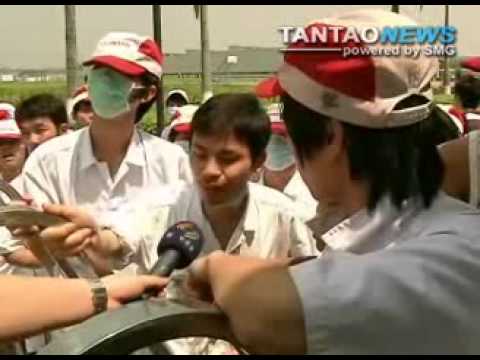

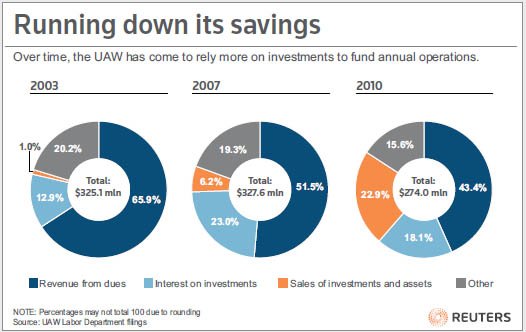
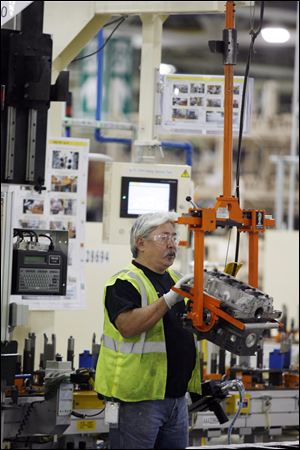



![Orion Labor Issues Resurface As Union Takes Strike Vote [UPDATE: Strike Authorized]](https://cdn-fastly.thetruthaboutcars.com/media/2022/07/17/9111970/orion-labor-issues-resurface-as-union-takes-strike-vote-update-strike-authorized.jpg?size=720x845&nocrop=1)

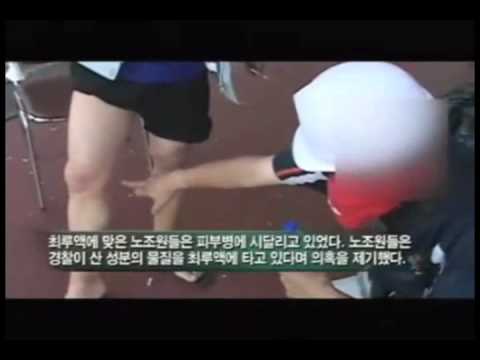
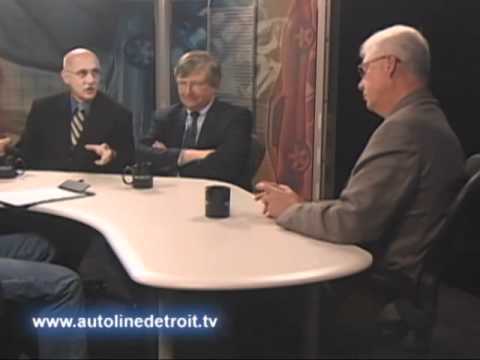

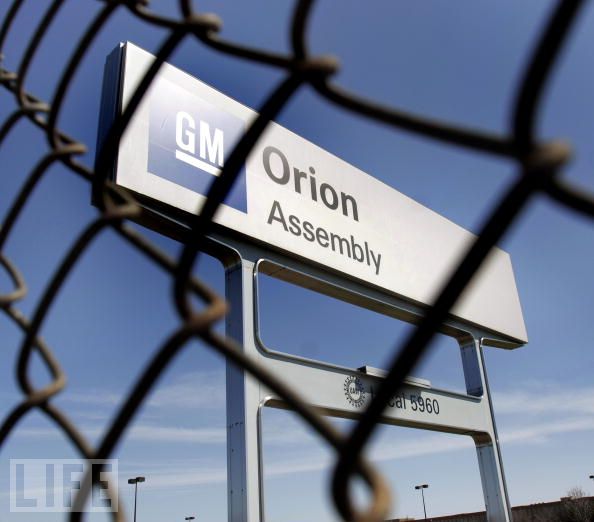

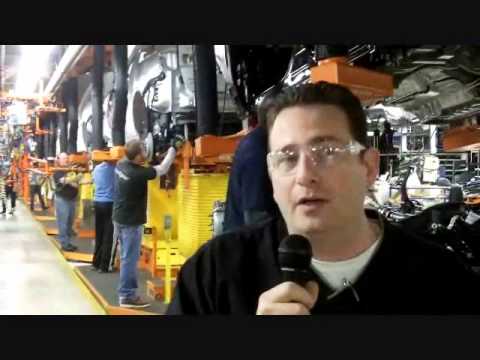
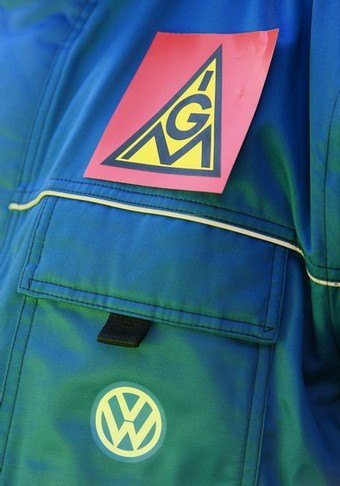

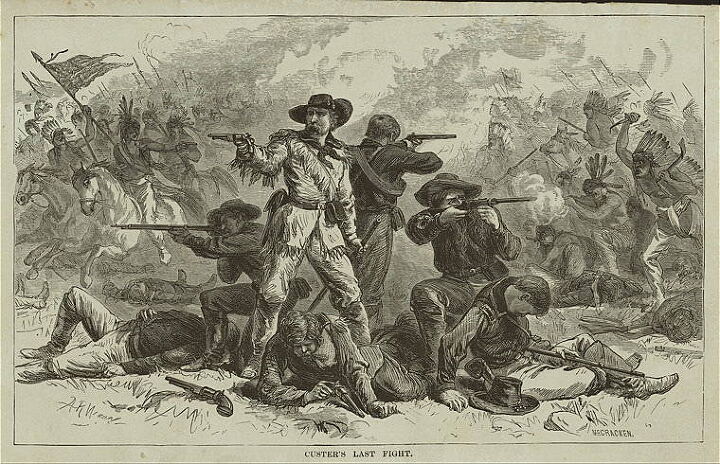
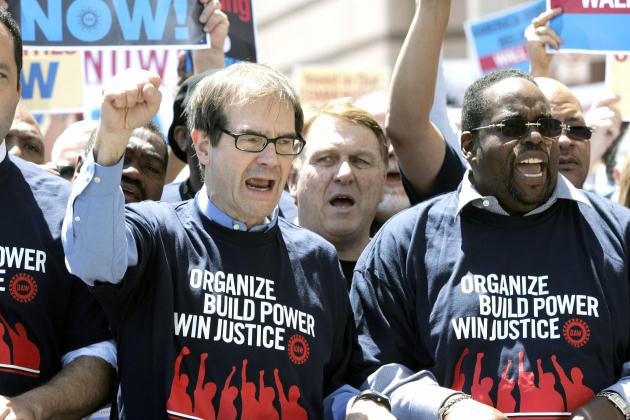













Recent Comments